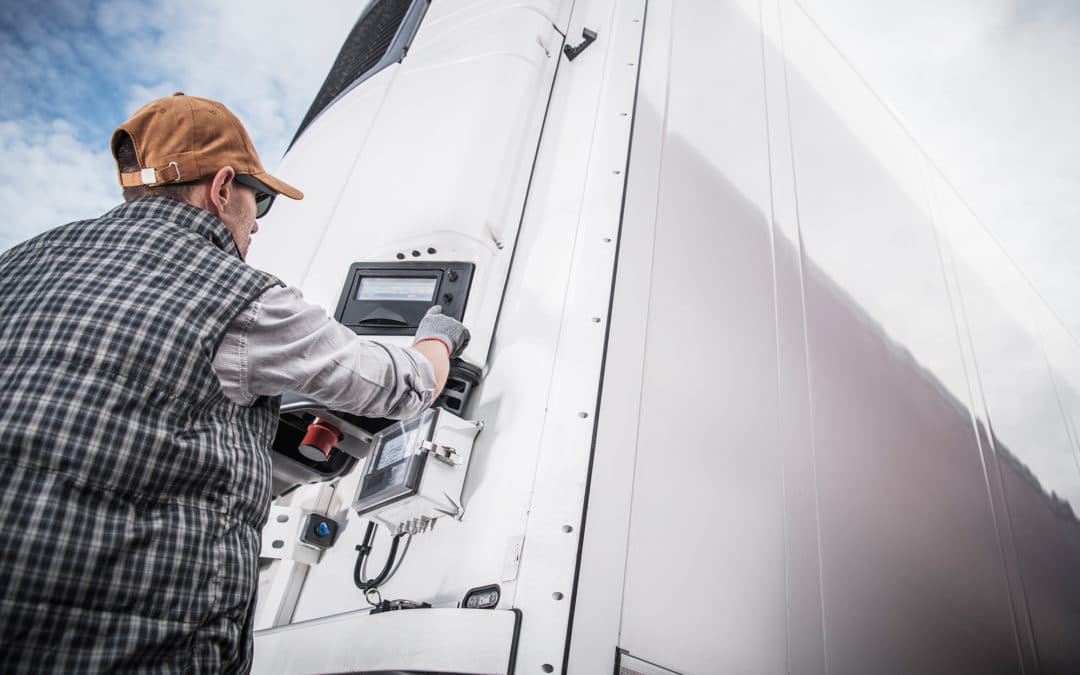Whether you are transporting refrigerated or frozen goods across town or across the country, cold product has to remain consistently cold. Of course, maintaining the proper temperature comes at a cost. Historically, that expense has been in the form of the diesel fuel needed to run a refrigeration unit, which must remain in operation while the rig is loading, unloading, or mobile.
However, in recent years the trend toward using trailers with hybrid diesel/electric cooling capabilities has been picking up momentum. These electric standby refrigerated trailers (reefers) are providing trucking companies with flexibility in how they keep food and other temperature-sensitive shipments cold and delivering a number of business benefits.
Electric Standby Reefers: Reducing Operating Costs by up to 70%
What’s behind the move to find trailers for rent, trailers for lease, or trailers for purchase that have electric standby capability? The biggest driver in the switch is the cost of electricity versus diesel fuel. While the amount of savings varies based on the current rates for diesel and electricity in a given area, by some estimates operating costs can be reduced by as much as 70 percent when the trailer is plugged into what is referred to as “shore power.” This can include during loading and unloading, when the driver is resting, etc.
As the use of hybrid cooling systems grows, so does the long list of impressive financial benefits.
Just a few examples include:
- A food service company in the Rocky Mountain region reported that it saved approximately $85,000 in fuel costs in the first year of using electric standby capability in its 27 trailers.
- Managers at a transportation company in the hot and humid Southeast estimate that they can save as much as $20,000 per week in the operation of the organization’s approximately 250 refrigerated trailers by plugging them in when they are parked.
U.S. companies aren’t alone or even in the lead in recognizing the financial benefits of operating electric standby reefers. In Europe, where fuel costs are much higher, electric standby functionality has been available for many years. In fact, more than 70 percent of truck refrigeration units in use there today can be switched to electric power when the trailer is idle.
Other Benefits of Electric Standby Reefers
For many companies, the fuel cost savings alone are enough reason to use electric standby reefers. But there are other advantages as well. One, of course, is the reduction in emissions. When operating in electric mode, trailers effectively eliminate their “carbon footprint,” which is better for the environment and also better for people in close proximity to the unit.
Another benefit is that rigs can be both cold and silent when running on electric power. This is especially helpful for businesses that operate near residential areas. Less diesel engine idling can make for much better relationships with neighbors. In addition, companies that use electric standby reefers save on the cost of maintaining a diesel-powered refrigeration unit.
Expanding the Infrastructure to Support Electric Standby Reefers
To capitalize on a refrigerated trailer’s electric cooling capability, you have to have a place to plug it in — what’s known as an electric transport refrigeration unit (eTRU) connection. This is generally not a problem for local operations, as they can opt to install the necessary shore power stations at their facilities so that any time spent loading or unloading trailers there can be at a more cost-effective electric rate.
For long-haul drivers, finding an electric source can be more of a challenge. Fortunately, many shore power providers are hard at work building stations at truck stops and other locations where truckers may spend time between their pickup and delivery points. And, of course, these providers are focusing on the most frequently traveled routes first, so the coverage there is good and getting better all the time. With a little bit of research and pre-planning, companies and drivers can, in many cases, find the electrical support they need for their trip, even if it is a coast-to-coast engagement.
As the coverage on well-traveled routes fills in, experts say that providers will look to continue their expansion based on the expressed needs of transportation companies. Consequently, you can help your cause by researching and reaching out to leading organizations in the industry to describe your routes and requirements.
It is definitely a case where the “squeaky wheel gets the grease,” or more accurately, the juice! And, while trailers and cars need different systems, the fact that consumers continue to push for more electric charging stations for hybrid and electric cars creates helpful general momentum toward the availability of more electricity resources.
Greater Safety and Enhanced Functionality for Hybrid Refrigerated Trailers
In addition to continually enhancing cooling units for refrigerated trailers to be lighter and more efficient, manufacturers are also making the units safer and “smarter.” For example, the risks associated with connecting and disconnecting high-voltage systems have largely been addressed by features that keep users safe in those scenarios. Some systems can even sense tension, such as in a drive-off situation, and respond appropriately.
Features like remote start/stop capability, system monitoring, and temperature sensors and probes are also becoming more common. Diagnostics and alerts are also available in many cases as well. Things like configurable alerts, door status alarms, maintenance-due notifications, and utilization reporting make it even easier to capitalize on the energy efficiency and other benefits of electric standby reefers.

